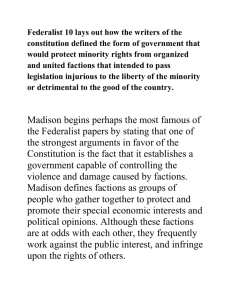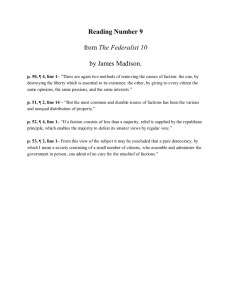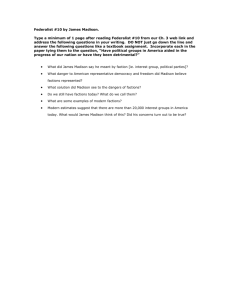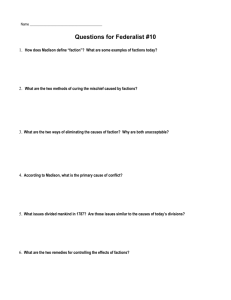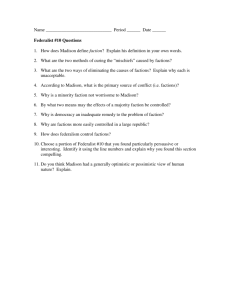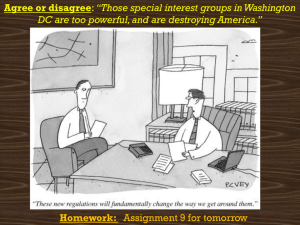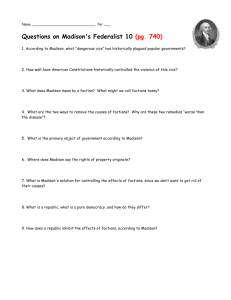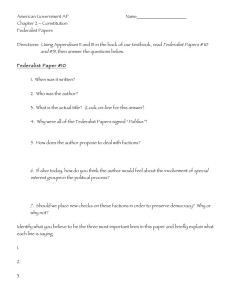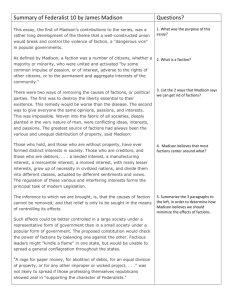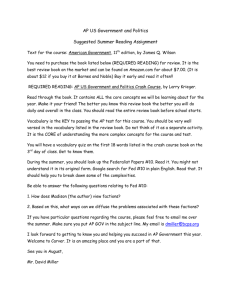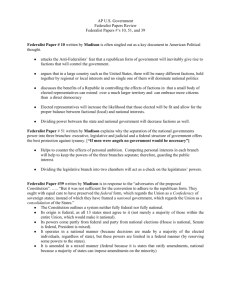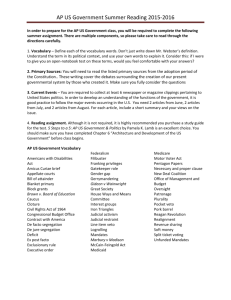Federalist Papers
advertisement
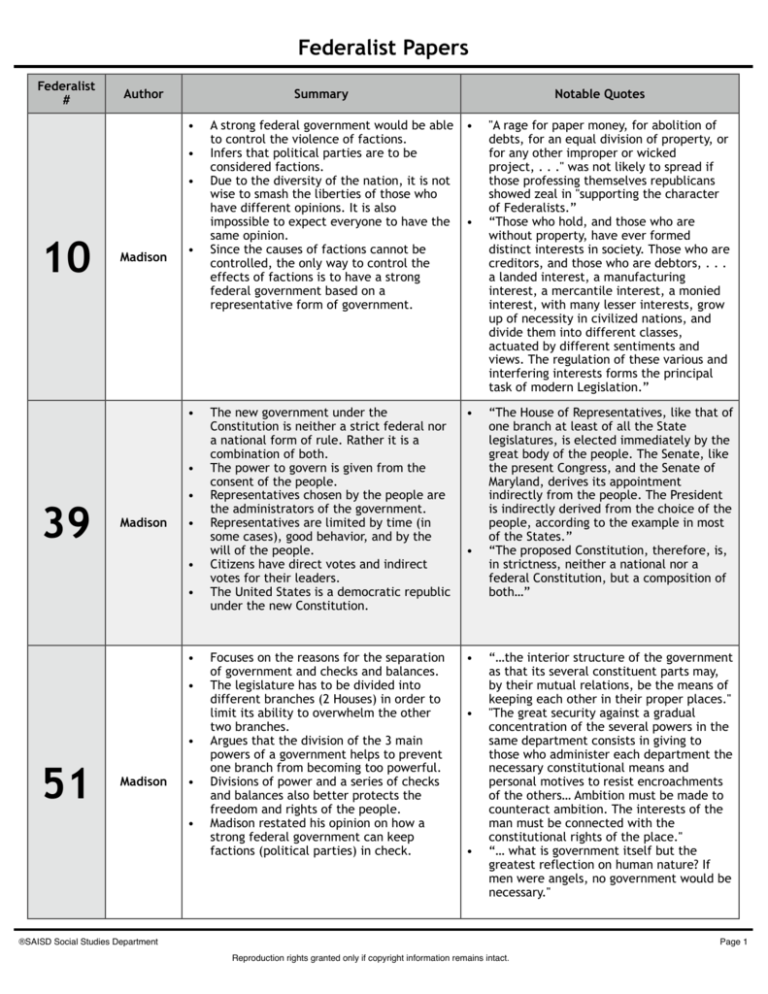
Federalist Papers Federalist # Author Summary • • • 10 Madison • • • 39 • Madison • • • • • • 51 Madison • • Notable Quotes A strong federal government would be able to control the violence of factions. Infers that political parties are to be considered factions. Due to the diversity of the nation, it is not wise to smash the liberties of those who have different opinions. It is also impossible to expect everyone to have the same opinion. Since the causes of factions cannot be controlled, the only way to control the effects of factions is to have a strong federal government based on a representative form of government. • The new government under the Constitution is neither a strict federal nor a national form of rule. Rather it is a combination of both. The power to govern is given from the consent of the people. Representatives chosen by the people are the administrators of the government. Representatives are limited by time (in some cases), good behavior, and by the will of the people. Citizens have direct votes and indirect votes for their leaders. The United States is a democratic republic under the new Constitution. • Focuses on the reasons for the separation of government and checks and balances. The legislature has to be divided into different branches (2 Houses) in order to limit its ability to overwhelm the other two branches. Argues that the division of the 3 main powers of a government helps to prevent one branch from becoming too powerful. Divisions of power and a series of checks and balances also better protects the freedom and rights of the people. Madison restated his opinion on how a strong federal government can keep factions (political parties) in check. • • • • • "A rage for paper money, for abolition of debts, for an equal division of property, or for any other improper or wicked project, . . ." was not likely to spread if those professing themselves republicans showed zeal in "supporting the character of Federalists.” “Those who hold, and those who are without property, have ever formed distinct interests in society. Those who are creditors, and those who are debtors, . . . a landed interest, a manufacturing interest, a mercantile interest, a monied interest, with many lesser interests, grow up of necessity in civilized nations, and divide them into different classes, actuated by different sentiments and views. The regulation of these various and interfering interests forms the principal task of modern Legislation.” “The House of Representatives, like that of one branch at least of all the State legislatures, is elected immediately by the great body of the people. The Senate, like the present Congress, and the Senate of Maryland, derives its appointment indirectly from the people. The President is indirectly derived from the choice of the people, according to the example in most of the States.” “The proposed Constitution, therefore, is, in strictness, neither a national nor a federal Constitution, but a composition of both…” “…the interior structure of the government as that its several constituent parts may, by their mutual relations, be the means of keeping each other in their proper places." "The great security against a gradual concentration of the several powers in the same department consists in giving to those who administer each department the necessary constitutional means and personal motives to resist encroachments of the others… Ambition must be made to counteract ambition. The interests of the man must be connected with the constitutional rights of the place." “… what is government itself but the greatest reflection on human nature? If men were angels, no government would be necessary." ®SAISD Social Studies Department Page 1 Reproduction rights granted only if copyright information remains intact.
